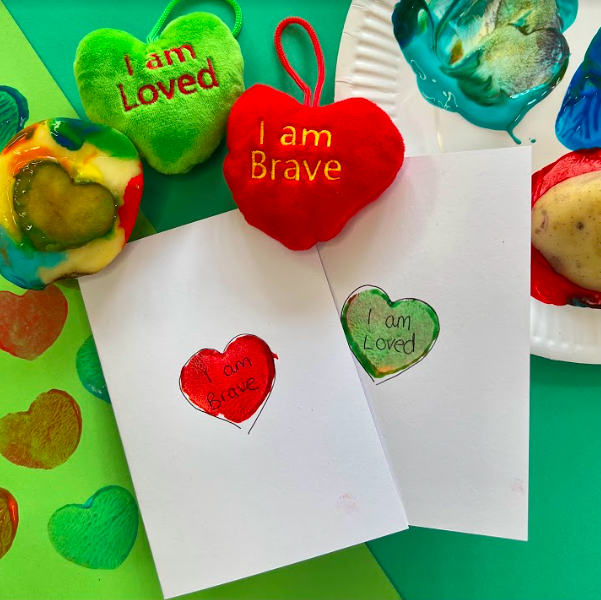Building self-esteem In children
Listen to your child to understand their personality, how they view themselves, and the world around them. Build close relationships with children, to educate, guide, and help them learn new skills to cope with life. Empower them and ensure they are well informed and supported to deal with any negativity they may think, feel or experience.
Use open questions to ask your child about their emotions and give them freedom to express without judgement. Go with your instinct to assess a child’s level of understanding and their ability to cope if they feel overwhelmed. Once you’ve asked the question, they may need reassurance that it’s okay to express honestly without negative consequences. And be prepared to help them regulate their emotions if they struggle.
Communicate your thoughts to teach your child the words and context to role model how they can express themselves. When they hear you express yourself, they will begin to learn these important tools indirectly. Remember that they absorb everything, and so it’s important to be mindful of what you role model to them. Don’t be surprised if you hear something shocking you and then realise they learnt it from you!
Use conversation to draw out what is going on for your child to help build their confidence to express their needs. Equipping them with the ability to say what they need and expressing themselves confidently makes them feel safe and valued. These are the ingredients of building positive self-esteem and emotional intelligence to cope in the world.
Questions to ask your child to help them express:
- What do you need right now, a hug, a chat?
- Would you like some space/time to settle before we talk?
Suggest ideas to your child to help them get their needs met:
- Shall we get a drink or snack and cuddle up to chat?
Suggestions help you to find out what works for your child and helps them to formulate their own ideas in time.
Tips for building your child’s self-esteem:
- Teach them chores and activities step-by-step, so they feel confident to try things out, and develop their skills
- Praise their efforts and be cautious with expectations to avoid pressuring them, particularly if they are sensitive
- Focus on strengths and positive parenting techniques
- Be mindful of criticism, build them up rather than put them down
- Share positives from your life and how you view yourself
- Guide your child when you notice they need support
- Turn perceived negative situations into positive ones
- Ask your child what would help them in the future.
- Spend time with your child to show them how important they are to you
- Help your child understand that failing is part of life
- Teach them that everyone makes mistakes and focus on problem-solving
- Explain that some things will be out of their control
- Suggest things they can do that are within their control
- Give your child choices to promote their independence and confidence
- Create positive social experiences and interactions
- Recognise your child’s achievements
- Praise their accomplishments.
Set small goals, routines, rules, and boundaries with your child to support their sense of belonging and security. You and your child are building connections and relationships that matter when things are not going so well. It’s like building a nest; somewhere safe for your child to come back to when the world feels stressful or unsafe.
Negativity can result in low self-esteem as young children can take things personally. Become aware of anything that you might do that could have a negative impact on them. Comparing yourself to others, judging, making assumptions, overreacting, and becoming defensive. If you have difficulty regulating and expressing your emotions, your child will learn from you.
Life happens, but if adults take responsibility for their difficult days and reactions, and children feel loved and cared for, then the positive will outweigh the negative. Apologise, when necessary, talk to children on their level about situations, and work on things together.
Fostering positive relationships are healthy for everyone’s development.
3 Take aways:
Listen to your child to understand their personality, how they view themselves, and the world around them.
Use open questions to ask your child about their emotions and give them freedom to express without judgement.
Communicate your thoughts to teach your child the words and context to role model how they can express themselves.
Reflection:
What questions can you ask your child to help them express their needs?
Building self-esteem In children
Did you find this interesting? Would you like to read more like this?
Visit us on social media by clicking the icons below…




